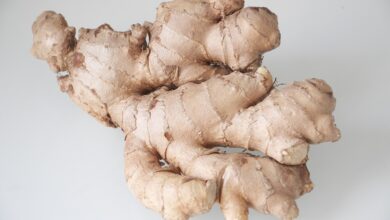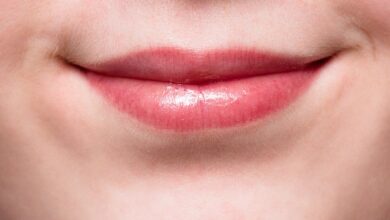Benefits of Black Seed Soap (Nigella Sativa) for the Body
The Benefits of Black Seed Soap (Nigella Sativa) for the Body

Black seed, also known as Nigella sativa or black cumin, has been used for centuries in traditional medicine for its remarkable healing properties. Extracted from the seeds of the flowering plant native to Southwest Asia, black seed oil is renowned for its wide range of health benefits. When incorporated into soap, black seed provides a potent natural remedy that enhances skin health and overall well-being. This comprehensive guide explores the various benefits of black seed soap, detailing its unique properties, applications, and the science behind its effectiveness.
Understanding Black Seed and Its Key Components
Black seed oil contains numerous bioactive compounds, including thymoquinone, nigellone, and a host of vitamins and minerals. These components contribute to its powerful antioxidant, anti-inflammatory, antibacterial, and antifungal properties. When used in soap, black seed oil can deliver these benefits directly to the skin, providing both therapeutic and cosmetic advantages.
Skin Health Benefits
1. Antioxidant Properties
Black seed oil is rich in antioxidants, which help protect the skin from damage caused by free radicals. Free radicals are unstable molecules that can cause oxidative stress, leading to premature aging and skin damage. The antioxidants in black seed soap help neutralize these harmful molecules, promoting healthier, more youthful skin.
2. Anti-Inflammatory Effects
The anti-inflammatory properties of black seed oil make it an effective treatment for various skin conditions such as eczema, psoriasis, and acne. Thymoquinone, a key component of black seed oil, has been shown to reduce inflammation and soothe irritated skin, providing relief from redness, itching, and swelling.
3. Antibacterial and Antifungal Benefits
Black seed soap’s antibacterial and antifungal properties help to cleanse the skin and prevent infections. This makes it particularly beneficial for individuals with acne-prone skin, as it helps to reduce bacterial growth and prevent breakouts. Additionally, it can be used to treat fungal infections such as athlete’s foot and ringworm.
4. Moisturizing and Nourishing
Black seed oil is an excellent moisturizer, rich in essential fatty acids that help to nourish and hydrate the skin. Regular use of black seed soap can improve skin texture and elasticity, leaving it soft, smooth, and supple. The soap’s moisturizing properties also help to prevent dryness and flakiness, which are common issues in harsh weather conditions.
5. Healing and Regenerative Properties
The healing properties of black seed oil can accelerate the regeneration of skin cells, promoting faster healing of wounds, scars, and other skin blemishes. This makes black seed soap an effective remedy for improving the appearance of scars and enhancing overall skin tone.
Applications and Usage
1. Daily Cleansing
Using black seed soap as part of your daily cleansing routine can help maintain healthy, radiant skin. Its gentle yet effective cleansing properties remove dirt, oil, and impurities without stripping the skin of its natural oils.
How to Use:
- Wet your face and body with warm water.
- Lather the black seed soap between your hands or on a washcloth.
- Apply the lather to your skin in gentle, circular motions.
- Rinse thoroughly with warm water and pat dry with a clean towel.
2. Acne Treatment
For individuals with acne-prone skin, incorporating black seed soap into your skincare routine can help reduce breakouts and prevent new ones from forming.
How to Use:
- Use black seed soap twice daily, in the morning and evening.
- Focus on areas prone to breakouts, such as the face, chest, and back.
- Follow up with a light, non-comedogenic moisturizer to keep the skin hydrated.
3. Eczema and Psoriasis Relief
The anti-inflammatory and moisturizing properties of black seed soap make it an excellent choice for managing eczema and psoriasis symptoms.
How to Use:
- Use black seed soap during your regular bathing routine.
- Avoid using hot water, as it can exacerbate dryness and irritation.
- After bathing, apply a gentle, fragrance-free moisturizer to lock in hydration.
4. Scar and Stretch Mark Reduction
To improve the appearance of scars and stretch marks, black seed soap can be used in conjunction with other treatments.
How to Use:
- Gently massage the affected areas with black seed soap during your shower or bath.
- For best results, use a circular motion to enhance absorption.
- After rinsing, apply a natural oil, such as rosehip or jojoba oil, to further promote healing and skin regeneration.
Scientific Support for Black Seed Oil’s Benefits
Numerous studies support the efficacy of black seed oil in treating various skin conditions. Research published in the Journal of Dermatology & Dermatologic Surgery highlighted the effectiveness of black seed oil in reducing acne lesions and improving skin appearance. Another study in the Phytotherapy Research journal demonstrated the anti-inflammatory and healing properties of thymoquinone, one of the primary active compounds in black seed oil.
Additionally, a study in the Journal of Ethnopharmacology confirmed the antifungal activity of black seed oil against a range of fungal pathogens, supporting its use in treating fungal infections.
Practical Tips for Choosing and Using Black Seed Soap
1. Quality Matters
When selecting black seed soap, choose products that use high-quality, pure black seed oil. Look for soaps that are free from synthetic additives, fragrances, and harsh chemicals to ensure you get the maximum benefits of the natural ingredients.
2. Patch Test
Before using black seed soap on your face or body, perform a patch test to check for any allergic reactions. Apply a small amount of soap to a discreet area of skin and wait 24 hours to see if any irritation occurs.
3. Consistent Use
For optimal results, incorporate black seed soap into your daily skincare routine. Consistent use will help maintain the skin’s health and appearance over time.
4. Complementary Skincare
Combine the use of black seed soap with other natural skincare products, such as moisturizers and serums that contain complementary ingredients like aloe vera, honey, and essential oils, to enhance overall skin health.
Black seed soap offers a multitude of benefits for skin health and overall well-being. Its rich content of antioxidants, anti-inflammatory agents, and essential fatty acids makes it an effective natural remedy for a variety of skin conditions. By incorporating black seed soap into your daily skincare routine, you can enjoy healthier, more radiant skin. Always choose high-quality products and use them consistently to achieve the best results. Embracing the natural power of black seed soap is a step towards achieving a holistic approach to skin care and wellness.



